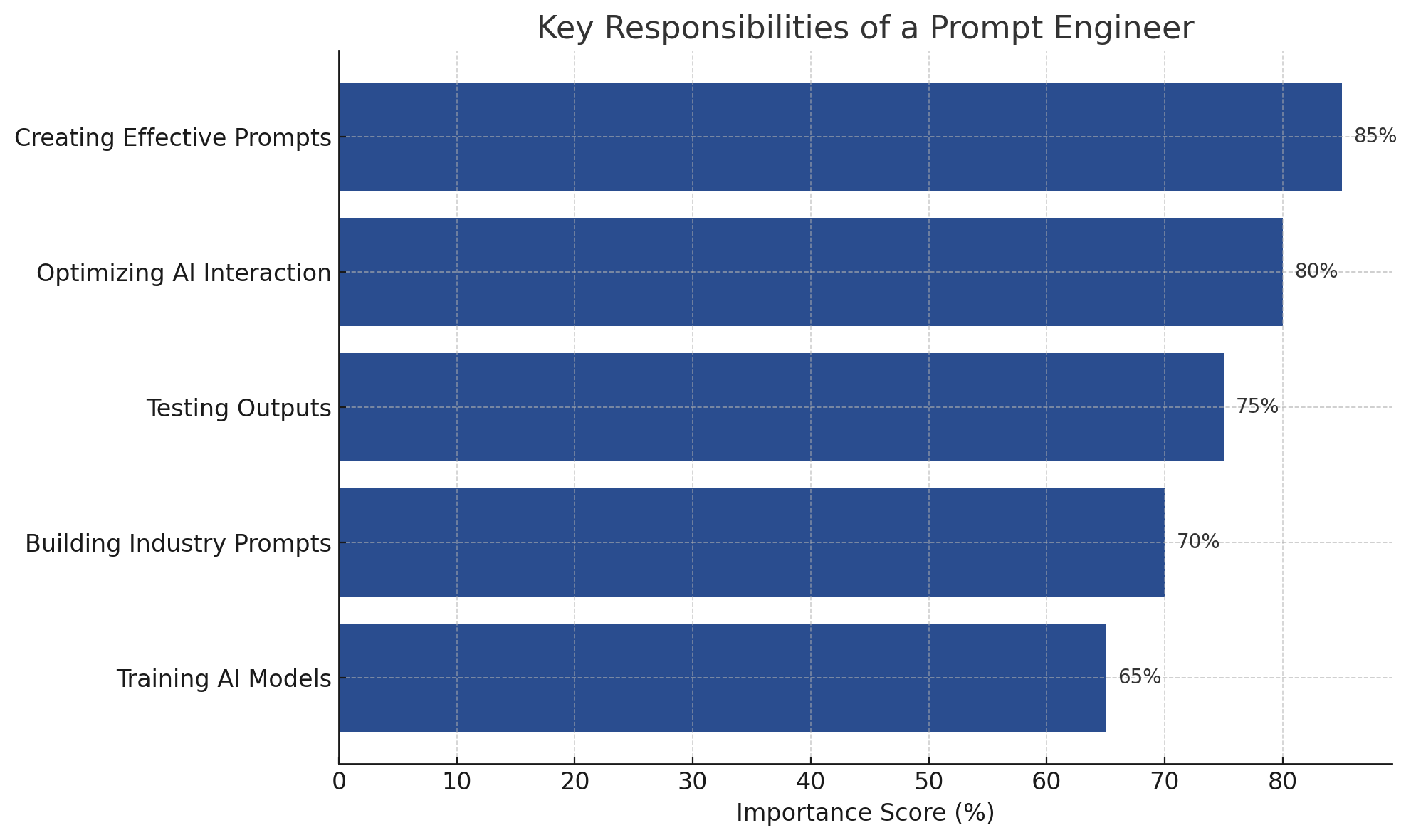The Rise of the Prompt Engineer 🚀
The role of the Prompt Engineer is a direct consequence of the exponential growth in AI capabilities, particularly in natural language processing (NLP) and generative models 🤖. These models can produce written text, artwork, code 💻, and even decision-making suggestions—but only when given specific, well-crafted prompts. A Prompt Engineer’s job is to design these inputs in a way that ensures the AI responds accurately and contextually. Think of it as translating human intentions into a language that AI can understand and respond to.
What makes this role particularly unique is that it requires both a deep understanding of the AI model’s capabilities and limitations, as well as creative problem-solving and communication skills. The Prompt Engineer essentially becomes the intermediary between human objectives and AI outputs.
Key Responsibilities of a Prompt Engineer
✅ Creating Effective Prompts
Design prompts that elicit the best possible output from AI, using knowledge of model behavior and language nuances.
⚙️ Optimizing AI Interaction
Refine and experiment with phrasing and context to improve AI responses.
📝 Testing and Evaluating Outputs
Assess whether outputs meet the objective in terms of tone, structure, and clarity.
🏥 Building AI Prompts for Specific Industries
Customize prompts for sectors like marketing, legal tech, healthcare, or customer service.
🤝 Training AI Models
Collaborate with AI trainers to improve prompt interpretation and model behavior over time.
The Skills That Make a Great Prompt Engineer
🧠 Understanding of AI and NLP
Know how models like GPT-4 or BERT function to design more effective prompts.
✍️ Creative Writing and Communication
Craft clear, engaging, and sometimes even poetic prompts.
🔍 Problem Solving
Diagnose issues in outputs and iterate toward better solutions.
📊 Data Analysis
Interpret feedback and data to refine prompt strategies.
🏛️ Industry Knowledge
Use relevant terminology and context depending on the sector.
The Future of Prompt Engineering: Career Growth and Industry Demand 📈
As AI becomes embedded in business operations, the demand for skilled Prompt Engineers will only grow. Whether enhancing customer support, creating compelling content, or improving backend workflows, the Prompt Engineer becomes a strategic force in unlocking AI’s potential.
Examples:
-
⚖️ Legal firms may need prompt engineers for contracts.
-
📢 Marketing teams can use AI-driven copy tailored to different audiences.
-
🛒 E-commerce platforms will automate product descriptions or chat support.
Emerging Professions Related to Prompt Engineering
🗣️ AI Communication Specialist – Optimizes language used with AI across platforms.
📚 Generative Content Strategist – Uses AI to produce creative, brand-aligned content.
📂 AI Product Manager – Aligns prompt strategy with business objectives.
💡 Human-AI Interaction Designer – Crafts intuitive prompts and workflows where humans and AI collaborate.
Why the Prompt Engineer Role Matters
The future of work isn’t about humans vs machines—it’s about humans + machines. The Prompt Engineer bridges that gap, turning AI into a creative, helpful, and efficient tool.
When AI is the engine, the prompt is the steering wheel—and Prompt Engineers are in the driver’s seat.

Conclusion: A Profession for the Future 🔮
The Prompt Engineer is not just a job for today—it’s a career of tomorrow. As AI evolves, so will this role, becoming more specialized, essential, and creative. For those who love tech, storytelling, and smart systems, it’s a future filled with possibility.
In the AI age, it’s not about being replaced.
It’s about being irreplaceably human.






